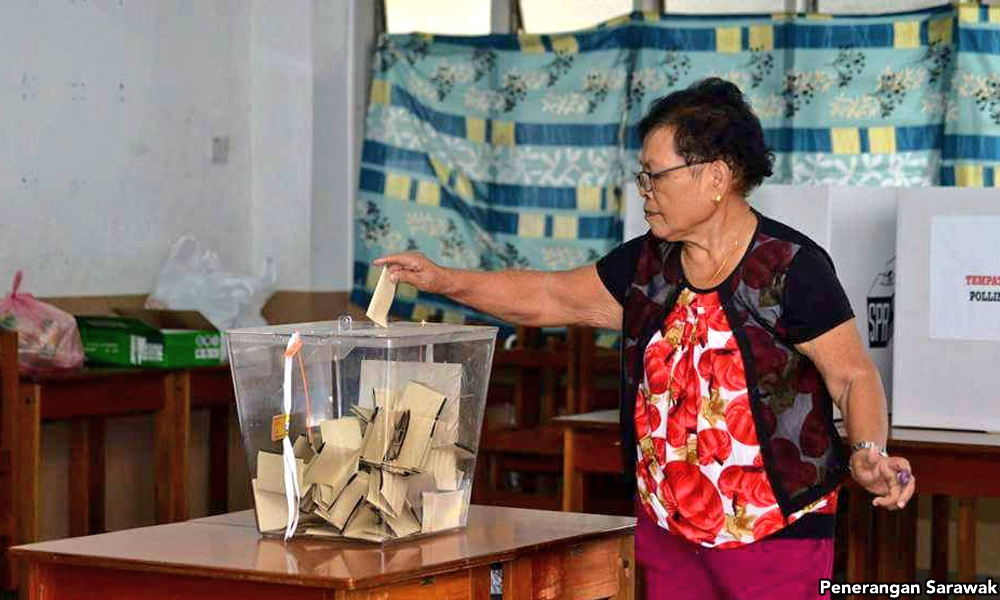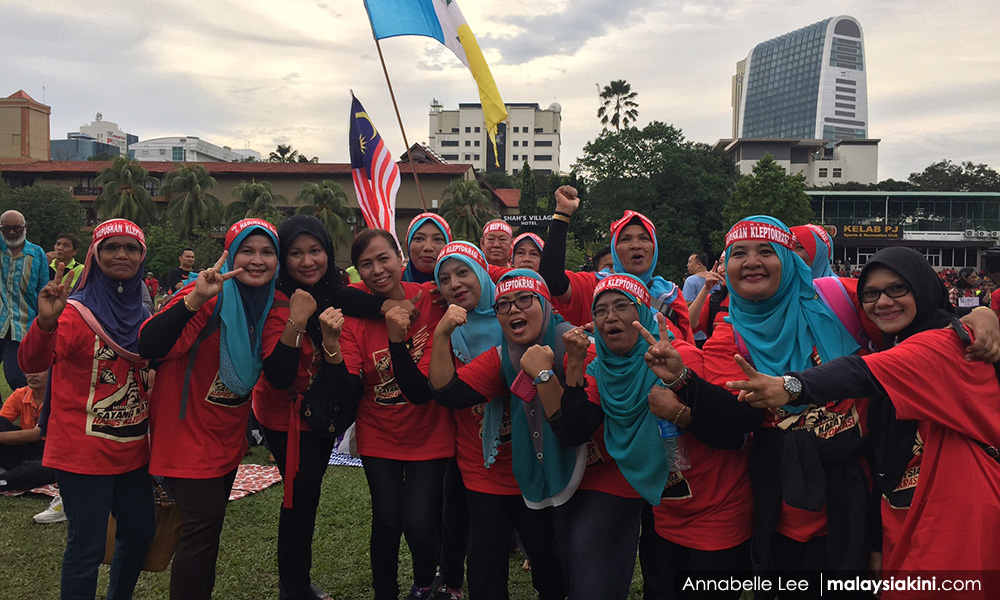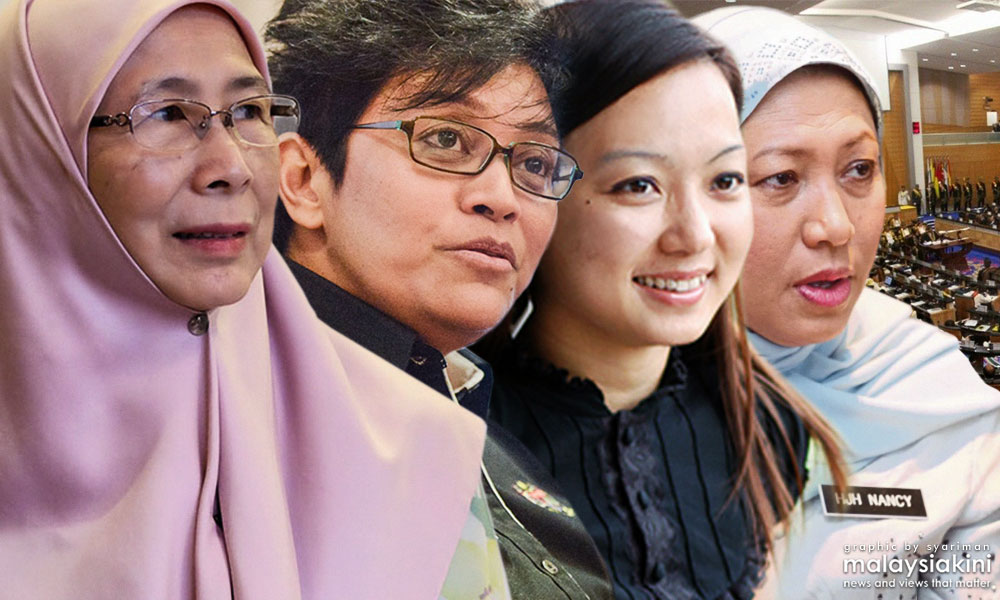
Malaysian women are waiting for the new government to keep their manifesto promises and uphold their rights
Despite experts from all around the world predicting that the incumbent government, which had held power for 61 years, would continue to do so, the Malaysian electorate turned up in record numbers – 82 percent – to vote.
They waited patiently in long lines for several hours to exercise their basic right of choosing who should be the next government. And Malaysians overwhelmingly voted for change.
Three key issues dominated the minds of voters - cost of living, corruption and conservatism. In their manifesto, the Pakatan Harapan outlined key areas of focus in the first 100 days and for the next five years. Women and girls derive both direct and indirect benefits from the promises in the manifesto.
When tackling the issues of cost of living and corruption, the indirect benefits are felt by women. As managers of household resources, moves such as abolishing the GST, fixing petrol prices, subsidising public housing and food prices and plans to ensure greater buying power, will all help women provide for their families’ needs better.
Addressing and fixing leakages and corruption in the public distribution systems enables funds to be better spent in the public sector and two areas – increasing the health spend from 2 to 4 percent of the GDP and making public schools the preferred choice of Malaysian parents increases families’ trust in the public services and puts more disposable income in the hands of households.
All of these will ease the burden on women and help them to better provide, distribute and channel resources within the family. Women voters were specifically called on to come out to vote on these two issues – taking care of their families and ensuring the future of their children, by both Dr Siti Hasmah and Dr Wan Azizah.
Harapan also made specific promises to women, which in my mind, are socially transformative and will help position women and girls as equal citizens in society.
The promises to women are the one pillar that will challenge the third concern of voters – that the social stranglehold of conservative forces in Malaysia was overpowering a number of institutions deemed secular. The direct benefits of this to women and to society overall cannot be underestimated.

The five key commitments to women and girls are in the areas of the economy, health and social security, education, legal status and political participation. Within these five areas of key commitments, the promises can be further divided into specific types of commitments.
One area is the overall commitment to the legal status of women and ensuring legal equality for women. This is critical as in the past decade, issues of women’s equality were largely sidelined and under this government, there is an opportunity to push for a number of reforms.
Pay equality and equal opportunities at work, as promised by the manifesto, is in itself a long process which often has to start with gender analysis, education of stakeholders, information campaigns and valuing of women’s care work as work.
Equality at work also calls upon employers to ensure a workplace free of sexual harassment and the need for passing a separate piece of legislation – long overdue – on this specific issue of discrimination. Currently, the Malaysian Employment Act was amended in 2012, with the clause Part XV (a), putting the onus on employers to ensure that policies, procedures and redress mechanisms are in place to handle sexual harassment.
However, today sexual harassment has gone beyond the workplace and are more evident in educational settings, media, public institutions and public places, calling for a broad but effective law.
Political participation
The second area – also an urgent piece of overdue legislation the new government has promised – is enacting the minimum age of marriage. While the law sets 18 as the minimum age of marriage, families, with special permission of religious courts and specific state officials, can marry their daughters off at a younger age.
The ‘special permission’ was in the earlier years a euphemism for being pregnant but in recent times, the loophole has been utilised for girls considered ‘wild’ and uncontrollable by their parents or have been dating boys.
In some rare cases, underage marriage has been utilised by men to avoid the charge of statutory rape. Despite Malaysia being a middle-income country with good access to free education, the 2000 census revealed that there were 10,267 children aged between 10-14 years who were married. In the 2010 census, the number of those married below the age of 19 more than doubled from 65,029 to 155,810. Early marriage has grave and irreversible consequences in the lives of girls.
Coupled with early marriage, the rise in teenage pregnancies in the country is disturbing – with an average of 18,000 teenage pregnancies occurring each year. Teenage pregnancies have a higher rate of maternal mortality and morbidity.
This twin phenomena of early age marriage and teen pregnancies also expose girls to HIV and STI infections and gender-based violence, along with reduced opportunities for further education, employment and overall prospects for life. Hence, enacting the minimum age of marriage would make a real difference in the lives of girls who live in vulnerable circumstances and ensure they do not get further marginalised through specific life events.
The third area is on women’s work which includes reproductive labour or care work. Reproductive labour or care work refers, simply, to the work of caring for others, including unpaid care for family members and friends, as well as paid care for others. Caring work includes taking care of children, the elderly, the sick and the disabled, as well as doing domestic work such as cleaning and cooking.

Care work is necessary for the functioning and continuing of society but it is unequally distributed, and due to gender power imbalances, the burden is often borne by women. Care work is often economically devalued or inadequately recognised and compensated for.
One of the first 100 promises of the new government was ensuring that husbands contribute two percent of their salaries for stay-at-home mothers and wives, while the government contributes RM50 in the national social security scheme known as the Employees’ Provident Fund (EPF). This is a first step towards recognising women’s care work and is an inherent part of achieving the goal of gender equality under the UN’s Sustainable Development Goals (SDGs).
Also, part of recognising care work is the new government’s commitment to growing the domestic caregiving sector. Formalising and compensating for care work is essential to ensuring that all labour in the economy is recognised and counted.
The fourth area is political participation of women and a commitment to ensure 30 percent of policymakers are women. However, the 30 percent is not reflected in the make-up of the legislative and women’s groups and feminist activists are pushing for a reflection of this promise in the composition of the executive. Yet, this may fall short of expectations.
More often than not, female politicians usually rise to head the women’s wing and may make it to a central coordinating committee of the party. The 30 percent quota is something that needs be abided within positions of seniority within the party itself. To much dismay, low numbers of women were also selected to form the state governments. The state government is a key place for women and men to learn how to manage state portfolios and gain experience for federal positions.
And this is a missed opportunity. However, Malaysia’s first female deputy prime minister sets an example to a generation of girls that they too can aspire to the highest office in the country.
The last area of interest is the introduction of a curriculum, which provides gender education, emphasises respect for women and presumably reiterates, the equality of women in society. This is a crucial step to reversing the inherent sexism and misogyny that has been rampant in our society and augurs well for our next generation.
It is perhaps the first time that a political manifesto has tried to address the various different issues that women in Malaysian society face – critical to our progress. As a political manifesto, it was able to go further and challenge conservative ideals of women’s roles and place in society. Now we need to see how the government will deliver.
SIVANANTHI THANENTHIRAN is executive director of the Asian Pacific Resource and Research Centre for Women (Arrow), a regional NGO that champions women’s sexual and reproductive health and rights. She has co-authored 'Reclaiming & Redefining Rights: The Status of Sexual and Reproductive Health and Rights in Asia and the Pacific' in 2009 and 2013. She has presented papers on sexual and reproductive health and rights at the UN in Bangkok and New York. -Mkini


No comments:
Post a Comment
Note: Only a member of this blog may post a comment.